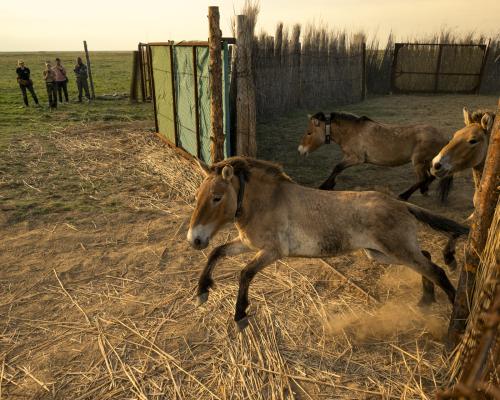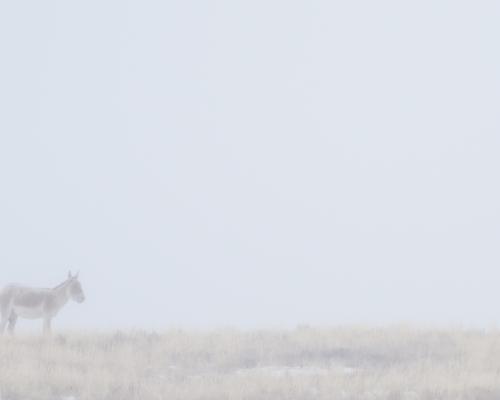With its strategic focus, FZS aims to achieve twice as much by 2030 as it does already. The first steps have already been taken.
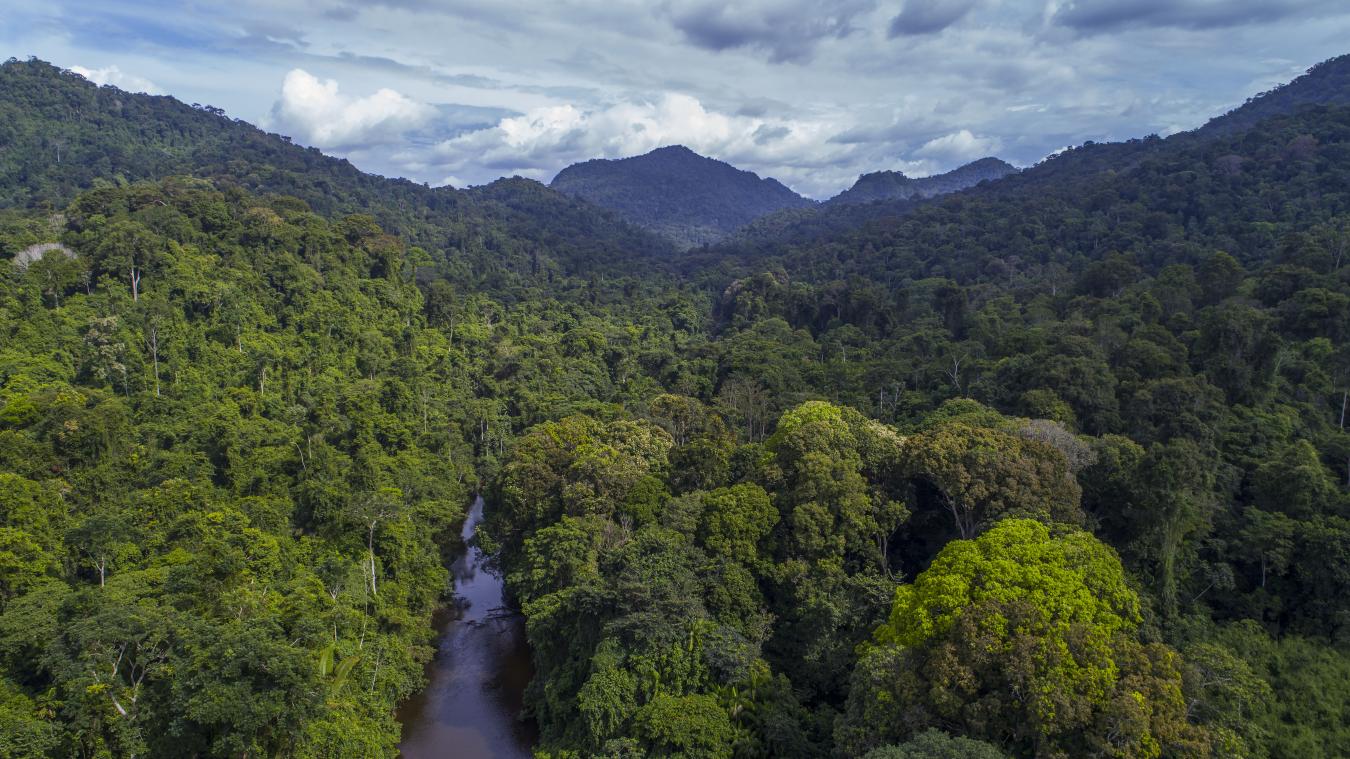
We want to double our nature conservation impact
An interview with Executive Director Dr. Christof Schenck.
Dr. Schenck, Frankfurt Zoological Society is keen to help meet the ambitious “30 by 30” target set by the CBD, the Convention on Biological Diversity. According to this target, 30% of Earth’s land and ocean area should be designated as protected areas by 2030. How are you planning
to do this?
Dr. Christof Schenck: Frankfurt Zoological Society needs to evolve significantly if it is to meet the new challenges. A strict selection process based on dedicated feasibility studies and scientific criteria will be used to decide on new project areas. The main focus will be on large natural ecosystems, on biodiversity and wilderness.
In last year’s annual report, you mentioned that FZS is adopting a “Double Conservation Impact” approach to its future development. How is that coming along?
It’s a very dynamic development. We’re currently expanding our involvement in Africa and South America in particular. In addition, FZS used specially earmarked private funds to conduct an external evaluation and to support the expansion of the FZS team. Safeguarding more wilderness in the future
will require additional staff and funding, especially long-term funding. We have even created two new departments for this purpose: Human Resources and Conservation Funding. At the same time, it’s important to ensure that we honor FZS’s values and continue to protect and cultivate our reputation, of which we are justly proud.
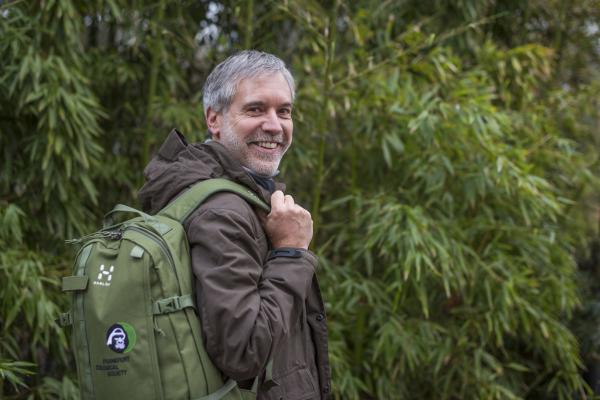
© Daniel Rosengren
How does FZS intend to structure this growth?
Our growth strategy is primarily geared toward our core objectives of safeguarding large wilderness areas that are rich in biodiversity
and, together with the local people in and around protected areas, we want to work on the most sustainable land use possible. At the same time, the large core areas in these landscapes, the “anchor parks,” should remain free from extractive use and anthropogenic impact if possible. This preserves
biodiversity, stores carbon and provides the basis for other ecosystem services that are important for human survival. Our approach here is made up of three elements: Secure, Extend, Expand.
What does that mean?
By Secure, we mean safeguarding existing project areas. Extend means protecting additional areas in a landscape in which we are already active or contributing to sustainable management. And Expand for us ultimately means expanding our project portfolio and taking on completely new areas, sometimes in countries that are new to FZS.
And all this is happening at the same time?
Yes. Increased activities and the co-management of projects in the Bale Mountains in Ethiopia and the Lomami National Park in the DR Congo come under the Secure category, for example. All in all, we are offering better protection as a result. Our new commitments in the game reserves and regions around the North Luangwa and Nsumbu national parks in Zambia are examples of Extend. Marromeu in Mozambique, on the other hand, is a completely new area in a country that is new to FZS and therefore comes under the category of Expand.
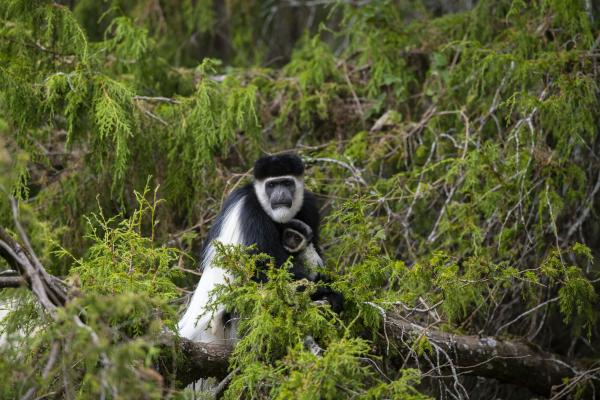
© Daniel Rosengren
How are these areas selected?
New areas must be selected very carefully and strategically, based on a set of criteria and a careful comparison of the different areas. After all, FZS is then committed to the resulting areas for many years, sometimes decades. The first scouting missions took place in 2023, and these have been significantly expanded in 2024. Our colleagues in the Africa department have already visited potential areas in Angola, South Sudan and Equatorial Guinea, and we are now considering whether they would be a good fit and represent a viable long-term commitment. In South America, it is primarily the large national parks and indigenous conservation areas in Brazil and Guyana where we are interested in investing more. In Mozambique and Brazil, FZS is already in the process of establishing legally independent non-profit organizations.
Do you think FZS is capable of expanding in this way?
Overall, we are seeing a widening gap between scientific fact and the actions of politicians, industry and society in general when it comes to the crises of biodiversity and climate change. This makes the work of FZS in large natural landscapes all the more crucial. Our growing team, outstanding regional portfolio, major donors, diversified income and plentiful reserves mean that we are fundamentally well positioned to meet these challenges. 2023 demonstrated this clearly, despite challenges and occasional setbacks.
Nevertheless, it is troubling that we are currently seeing decreases rather than any significant increase in government funding from Germany for international biodiversity protection – in contrast to promises the German chancellor made to the United Nations. This makes private and corporate contributions to the conservation of natural resources all the more important.

© Christof Schenck
What consequences does this have for FZS?
FZS is investing in improving its structures and work processes to further professionalize the organization and build highly effective teams with which we can achieve our ambitious goals. We need to counter increasing administrative complexity by ensuring that our processes are streamlined. It is also crucial that we measure the results of our work objectively and learn from them on an ongoing basis. We will continue to invest in finding new sources of public and private funding and in diversifying our sources of revenue. However, we still regard ourselves as hands-on practitioners in the field
of nature conservation. We attach importance to establishing a long-term presence on the ground and working in close partnership with private and state actors. This is the only way we can actually double our nature conservation impact and preserve more and larger wilderness areas both for ourselves and for future generations.
In 2023, Christof Schenck, FZS Executive Director, was invited to join two trips of the German President Frank-Walter Steinmeier. At the turn of the year, Schenck accompanied the president to Brazil, in the fall to Tanzania and Zambia. “It is important and good to see that biodiversity and sustainable ecological development are high on the political agenda,” said Schenck. Especially during the visit to Zambia, sustainable development of rural communities near protected areas was an important topic.
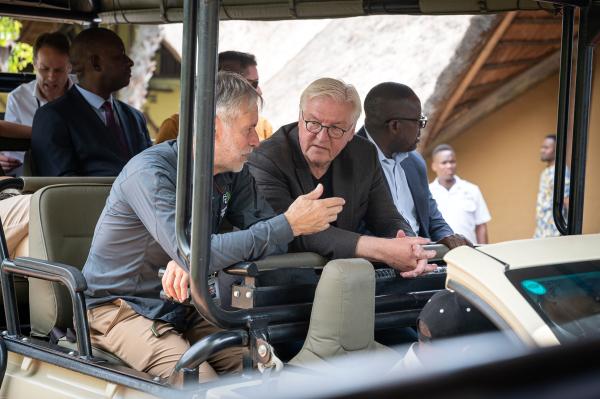
©Bernd von Jutrczenka







